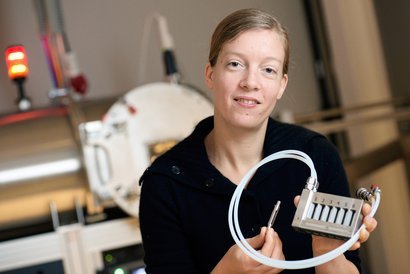Ilja Voets has won an ERC Starting Grant for her research into the ‘antifreeze’ mechanism that allows polar fish to survive under extreme conditions. She plans to use the resulting knowledge to design and produce new, macromolecular antifreeze materials for applications like medicines, crops and coatings. The grant has a value of 1.66 million euros.
Most animals are unable to survive freezing. But some freeze-tolerant fish produce their own antifreeze – in the form of proteins – that prevents the water in their bodies from crystallizing into ice. Ilja Voets (1980) plans to study how this mechanism works at molecular level. She hopes this will enable her to develop new, synthetic polymers that can do the same thing, possibly even better. Her project is called ‘Ice-binding proteins: from antifreeze mechanism to resistant soft materials’.
The Starting Grants from the ERC (European Research Council) are intended for excellent young scientists, and will enable them to set up their own research programs and teams.
Voets works at the Institute for Complex Molecular Systems (ICMS) of TU/e and has received earlier grants, for example from NWO (Netherlands Organisation for Scientific Research, Rubicon and Veni grants) and from the Swiss National Science Foundation.
Source: www.tue.nl
Photo: Bart van Overbeeke
















